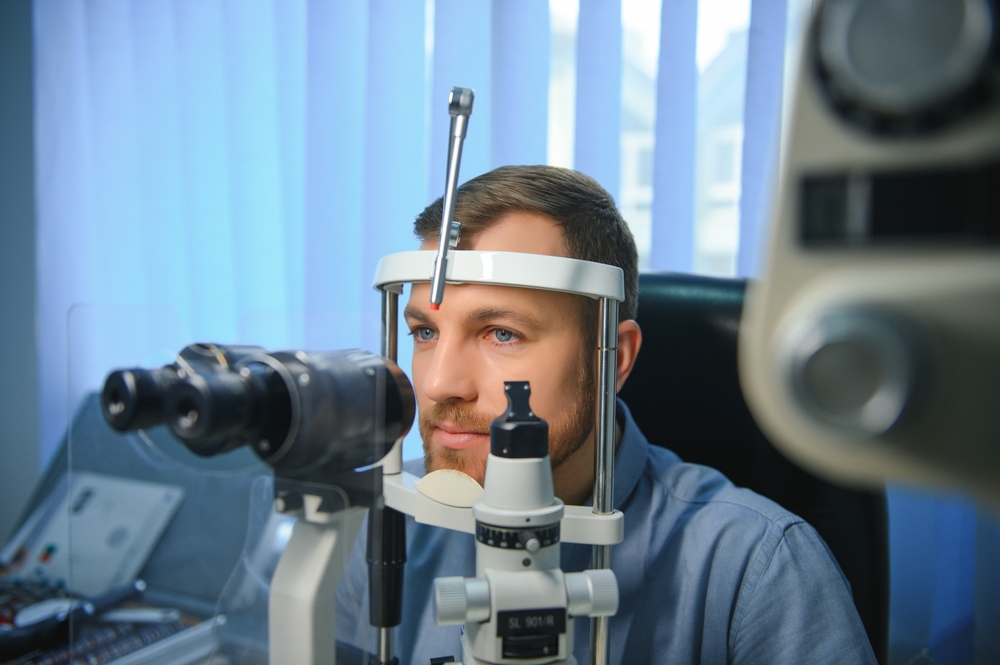Early Detection of Glaucoma: Why It's Crucial
Blog:Early Detection of Glaucoma: Why It's Crucial

Early Detection of Glaucoma: Why It's Crucial
Glaucoma is a group of eye conditions characterized by damage to the optic nerve, which is responsible for transmitting visual information from the eye to the brain. This damage is often caused by increased pressure within the eye, known as intraocular pressure (IOP). If left untreated, glaucoma can progressively lead to vision loss and even blindness.
Understanding the Causes of Glaucoma
There are several factors that can contribute to the development of glaucoma, including:
Age: The risk of developing glaucoma increases with age, with the condition becoming more common in people over the age of 60.
Family History: Individuals with a close relative who has glaucoma are at a higher risk of developing the condition themselves.
Race: Certain ethnic groups, such as African Americans and Hispanics, are at a greater risk of developing glaucoma.
Medical Conditions: Conditions like diabetes, high blood pressure, and certain eye injuries can increase the risk of developing glaucoma.
The Importance of Early Detection of Glaucoma
Early detection of glaucoma is crucial because it allows for prompt treatment and management of the condition. When glaucoma is caught in its early stages, vision loss can often be slowed or even prevented through the use of appropriate therapies and lifestyle changes. However, if glaucoma goes undetected and untreated, it can lead to permanent and irreversible vision damage.
Regular eye check-ups with an optometrist are essential for the early detection of glaucoma. During these appointments, your doctor will perform a comprehensive eye examination, which may include the following tests:
Tonometry: This test measures the pressure inside your eye (intraocular pressure) to determine if it is within the normal range.
Optic Nerve Evaluation: Your doctor will examine the optic nerve at the back of your eye to check for any signs of damage or changes.
Visual Field Test: This test measures your peripheral (side) vision to detect any blind spots or areas of vision loss.
Common Symptoms of Glaucoma
In the early stages of glaucoma, there may be no noticeable symptoms, which is why regular eye check-ups are so important. However, as the condition progresses, you may experience the following symptoms:
Blurred or decreased vision
Difficulty seeing in low light conditions
Halos or rainbow-colored circles around lights
Frequent headaches or eye pain
Sudden vision loss
If you experience any of these symptoms, it's crucial to schedule an appointment with your eye doctor as soon as possible.
Management Options for Glaucoma
Once a diagnosis of glaucoma is made, your eye doctor will work with you to develop an appropriate treatment plan. There are several treatment options available for managing glaucoma, depending on the type and severity of the condition. These may include:
Eye Drops: Prescription eye drops are the most common first-line treatment for glaucoma. These medications work to lower intraocular pressure by either reducing fluid production or improving fluid drainage within the eye.
Oral Medications: In some cases, your doctor may prescribe oral medications to help control eye pressure.
Laser Therapy: Certain types of laser procedures can be used to improve fluid drainage and lower eye pressure.
Surgical Interventions: In more advanced cases, your doctor may recommend a surgical procedure, such as minimally invasive glaucoma surgery (MIGS) or traditional glaucoma surgery, to improve fluid drainage and lower eye pressure.
Schedule Your Comprehensive Eye Exam with Texas State Optical, Lake Jackson Today
Early detection of glaucoma is crucial for preserving your vision and preventing permanent vision loss. By scheduling regular eye check-ups and being aware of the common symptoms of glaucoma, you can take an active role in safeguarding your eye health.
Don't wait until it's too late, schedule an appointment with Texas State Optical, Lake Jackson, to get your eyes checked for glaucoma. Early detection and proper management can make all the difference in protecting your vision for years to come. Visit our office in Lake Jackson, Texas, or call (979) 297-8188 to book an appointment today.


